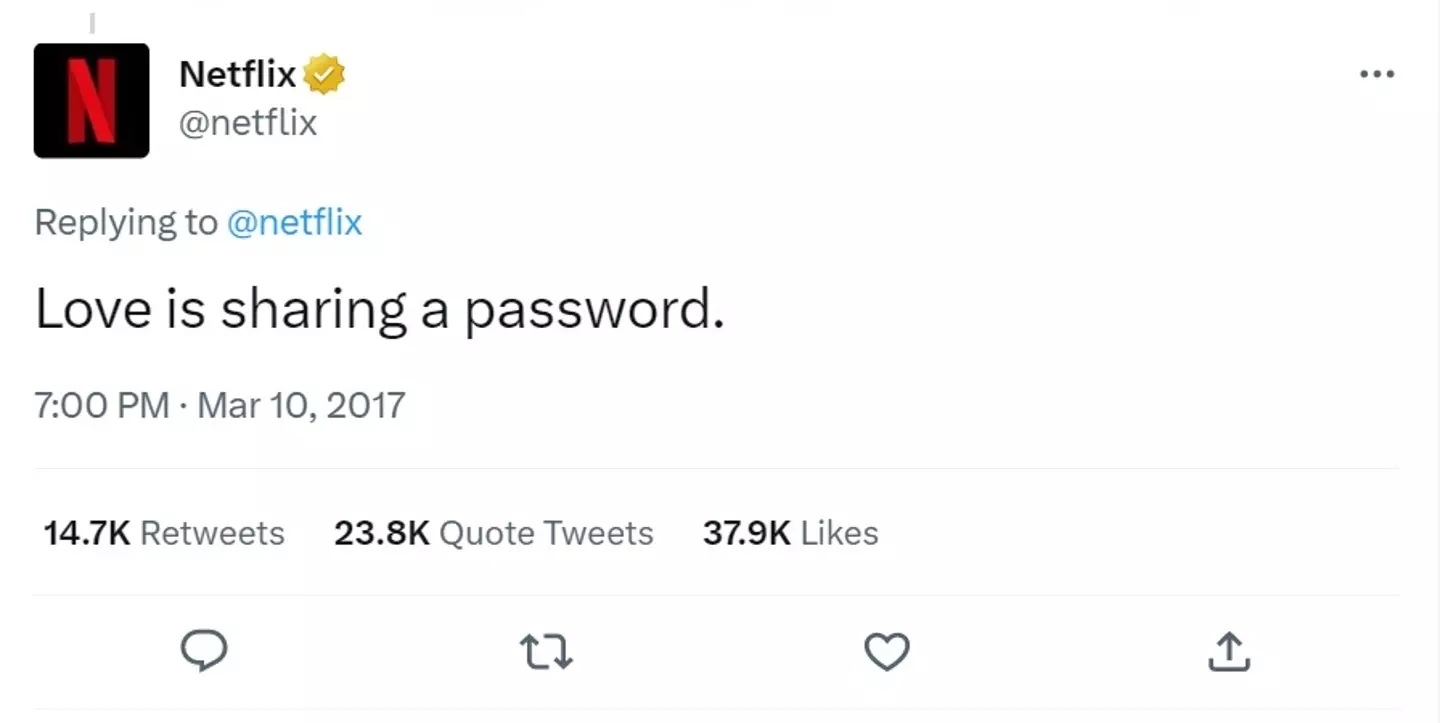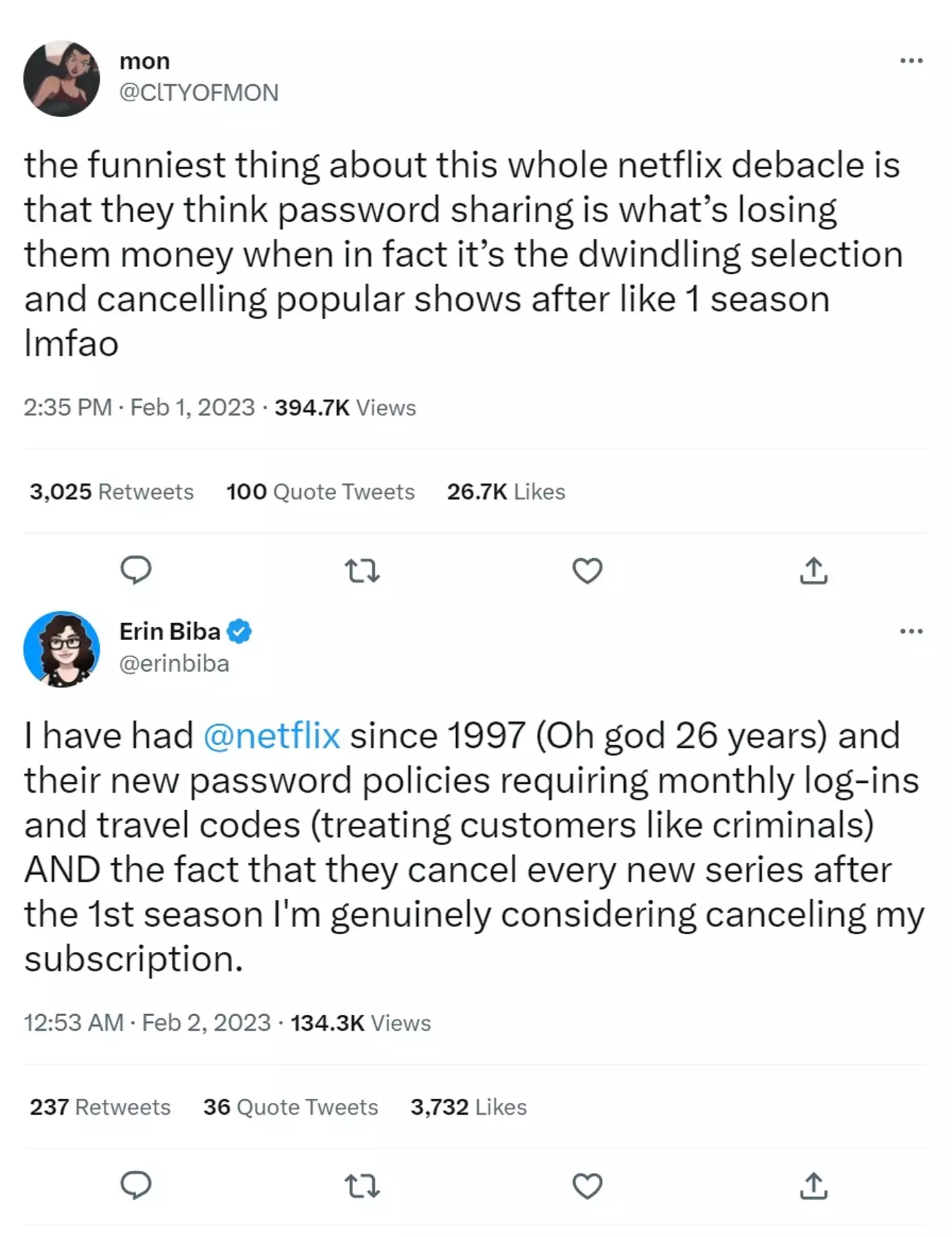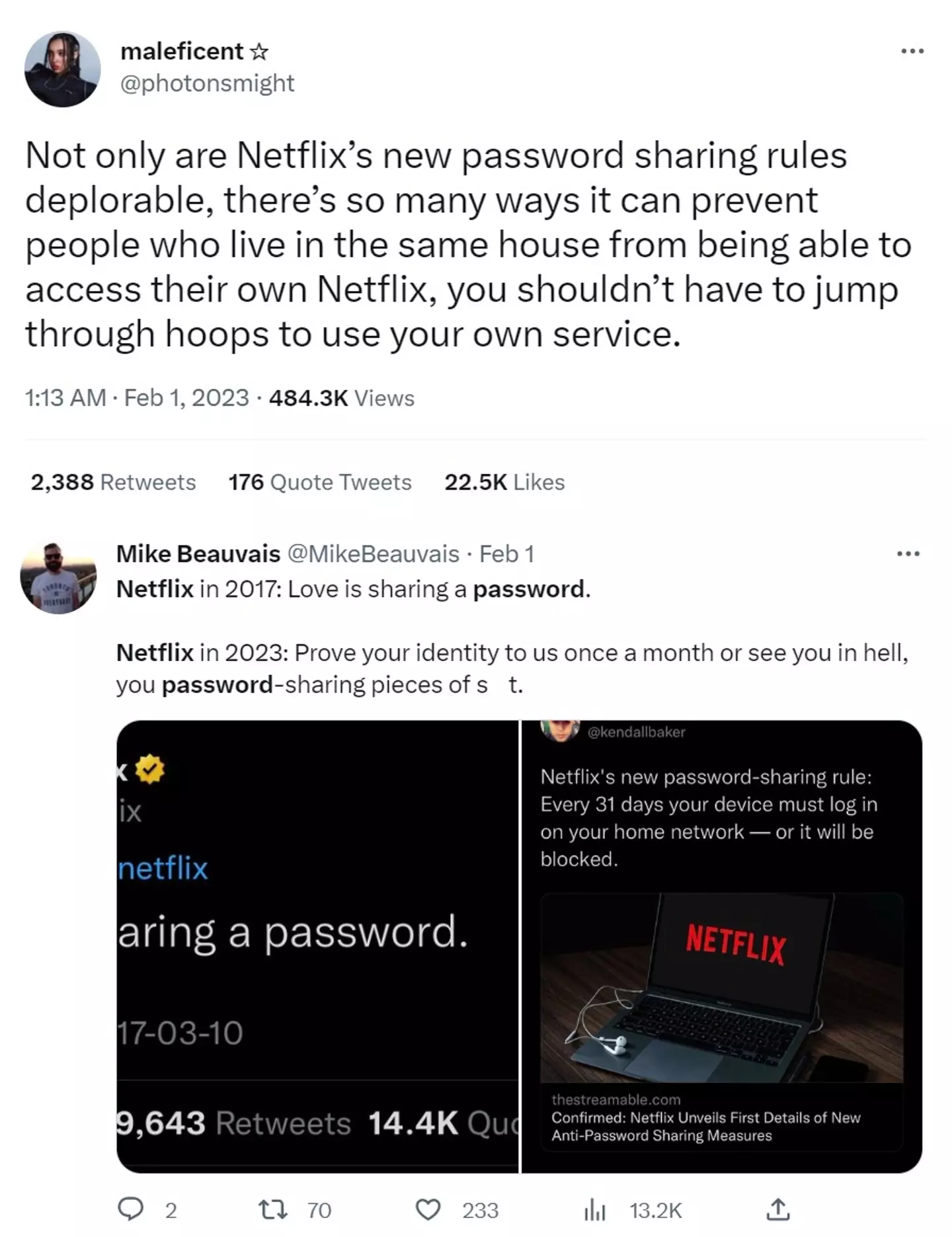
Netflix is facing a substantial backlash to their planned crackdown on password sharing after new details were spotted on their Help Center page.
The streaming service estimates that there are about 100 million accounts currently making use of password sharing arrangements and reckons it could get plenty more subscribers if every household had to have their own account.
Netflix says password sharing 'undermines our long term ability to invest in and improve Netflix' and their major goal for 2023 is clamping down on one account getting shared around multiple households.
In a recent letter to their shareholders the streaming service also said subscribers would 'have the option to pay extra if they want to share Netflix with people they don't live with'.
Advert
However, a Netflix Help Center article telling customers what the new rules were also outlined the possible shape of things to come for users of the streaming service.
Part of the new arrangement pretty much boils down to you needing to log into your account on your household's wi-fi at least once every 31 days or it'll be blocked.

How many devices you can stay logged in on depends on how much you pay for your subscription, and if that device isn't logging into your household wi-fi at least once every 31 days then your account can be hit with a block.
There are ways around the block as you'll be able to get temporary access codes to keep accessing your account, but these only last for seven days so if you're away from home for an extended period of time it could be a big hassle.
If your account get blocked you'll have to contact Netflix to unlock it and many users think that sounds like a lot of hassle to put up with.
There has been a wave of criticism on social media from Netflix users who reckon there are serious flaws in the streaming service's plans.

One person said it was a 'wild decision' and wondered whether Netflix were 'aware of long distance relationships, kids in college and poor people'.
Someone else argued that this supposed change would actually hit the 'legitimate' Netflix users the hardest as they'd run into 'myriad technical difficulties that will p**s them off' and make them want to cancel their accounts.
Another said people 'shouldn't have to jump through hoops to use your own service', pointing out that people might have to face extra hassle if they wanted to use their own account legitimately.
Even Olympic champion Simone Biles chipped in to say she 'may quit Netflix simply because I'm lazy & hate re-entering my password'.
Others directed their ire at Netflix for cancelling shows they loved, though the streaming service has insisted they have 'never cancelled a successful show'.

In response to the backlash, a spokesperson for Netflix said: "For a brief time yesterday, a help center article containing information that is only applicable to Chile, Costa Rica, and Peru, went live in other countries. We have since updated it."
The streaming service has been testing some of their new features meant to crack down on password sharing in these three countries, including the possibility of adding 'sub-accounts' for people they don't live with.
While the current rules aren't yet coming in outside of those three countries and Netflix says they were posted online by mistake, if those plans do get rolled out worldwide then it's entirely possible that information won't be 'only applicable' to just Chile, Costa Rica and Peru.
Topics: Netflix, Film and TV